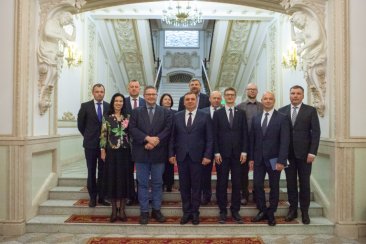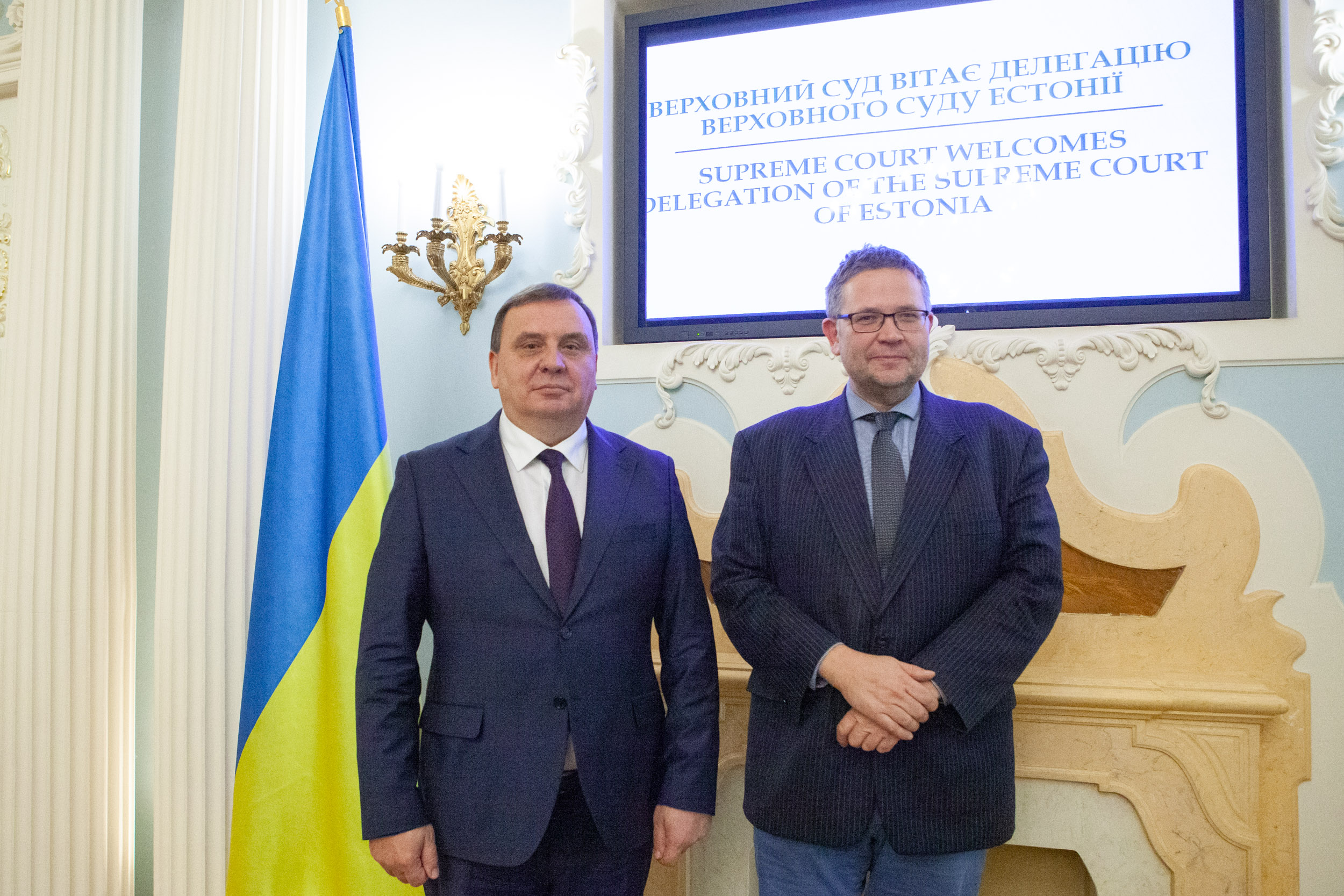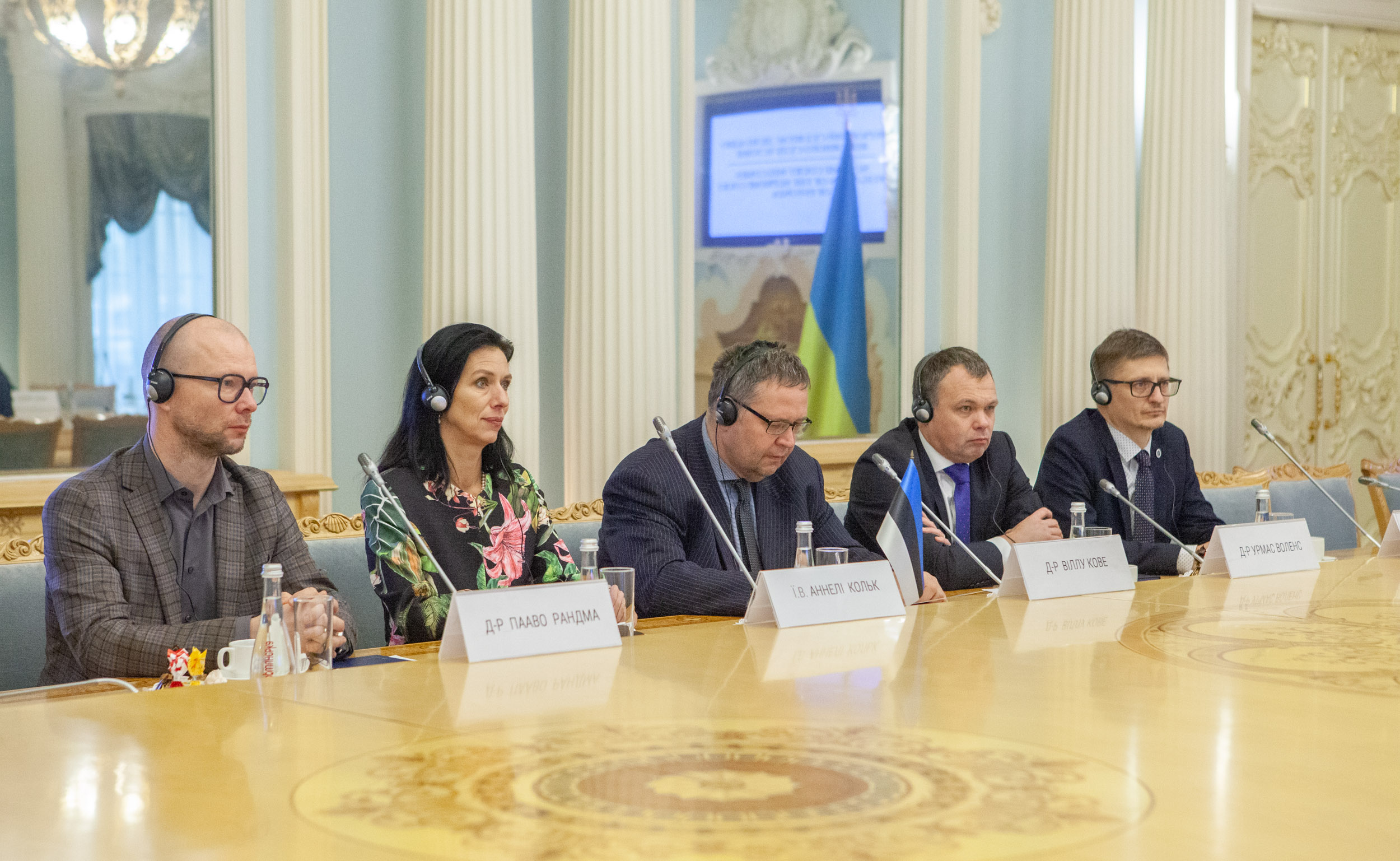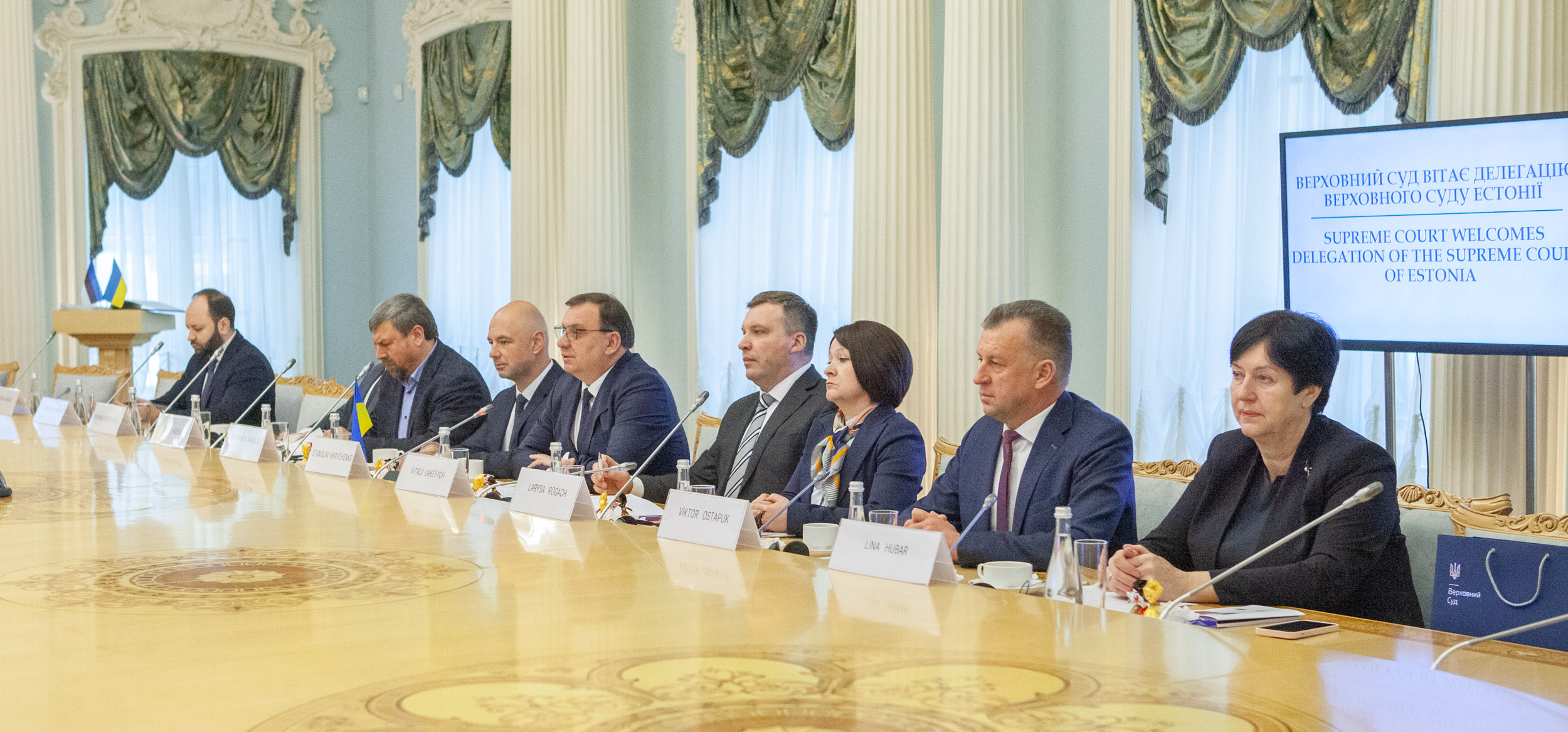Contact center of the Ukrainian Judiciary 044 207-35-46

Since the first days of Russia's full-scale invasion of Ukraine, Estonia has officially condemned the actions of the aggressor state, expressed its support for Ukraine and has been providing our country with significant humanitarian, financial, advisory and technical assistance, as well as shelter for Ukrainians who were forced to flee their homes during the war. Estonia has also been one of the most consistent supporters of Ukraine's European choice.
Stanislav Kravchenko, President of the Supreme Court, made this point during a meeting with a delegation of the Supreme Court of Estonia headed by its Chief Justice, Villu Kõve. The delegation included Ivo Pilving, Chairman of the Administrative Law Chamber of the Supreme Court of Estonia, Urmas Volens, Chairman of the Civil Chamber, and Paavo Randma, Justice in the Criminal Chamber.
The President of the Supreme Court noted that the visit of the Estonian delegation to Kyiv demonstrates support for Ukraine and its judicial system at a time when Russia is waging an aggressive war against our country.
Bilateral cooperation between the Supreme Courts of Ukraine and Estonia began before the full-scale Russian invasion, and now, in the light of the tragic events for Ukraine, this cooperation is deepening.
Stanislav Kravchenko expressed his gratitude to the Network of the Presidents of the Supreme Judicial Courts of the European Union, represented by the Chief Justice of the Supreme Court of Estonia, Mr. Villu Kõve, for the opportunity to participate in the Network's events as an observer. The President of the Supreme Court also thanked Estonia for its participation in the restoration of Ukraine, its support for the European and Euro-Atlantic aspirations of Ukrainians, and its initiative to establish a special international tribunal for the crime of aggression against Ukraine.

The President of the Supreme Court also spoke about ensuring the administration of justice in Ukraine under martial law, stressing that despite all the difficulties, the judicial system has held up, is functioning and is providing adequate protection of citizens' rights and freedoms.
Villu Kõve, Chief Justice of the Supreme Court of Estonia, stressed that strong ties and friendly relations had been established between our countries even before the full-scale war. In addition, Estonia understands the problems and needs of Ukraine and is ready to continue to support it on its path to European Union membership, including providing the necessary assistance in the process of implementing judicial reform and legislative changes.
Villu Kõve also informed that during the Colloquium of the Network of the Presidents of the EU Supreme Judicial Courts and the meeting of the Network's General Assembly, which recently took place in Vienna, the participants discussed, among other things, how the Network could support Ukraine and its judiciary.
At the same time, it would be interesting and useful for Estonian judges to study the experience of the Ukrainian judiciary in conditions of full-scale war and the challenges facing the Ukrainian judicial system.
Annely Kolk, Ambassador Extraordinary and Plenipotentiary of the Republic of Estonia to Ukraine, stressed that Estonia has always supported Ukraine and is currently providing assistance in various areas, including through the implementation of the sanctions policy. The Ambassador also expressed her conviction that Ukraine would be victorious and assured that Estonia would continue its efforts to ensure that Russia was expelled from all international organisations, as the aggressor has no place in the civilised world community. That is why Estonia supports the establishment of a special international tribunal, which will be the key to restoring justice.
Annely Kolk pointed out that Ukraine was the only country in the world that was implementing the reforms necessary to join the EU while at war. According to the Ambassador, this path will be difficult, but Estonia is ready to share its own experience of European integration and provide Ukraine with the necessary support.

Mykhailo Smokovych, President of the Administrative Cassation Court of the Supreme Court, provided information on the establishment and development of administrative justice in Ukraine and spoke about the work of the administrative court system during the war.
The President of the Administrative Cassation Court of the Supreme Court also announced that the Law of Ukraine "On Administrative Procedure" has been adopted to meet EU requirements and will come into force in December this year. This Law introduces a procedure for the pre-judicial settlement of conflicts in the field of public relations. Under its provisions, the lion's share of disputes will be resolved at the level of government authorities, and only then will individuals be able to go to court.
Mykhailo Smokovych also said that the number of cases brought before administrative courts had increased significantly during the war. Most of them relate to public and military service, social benefits and sanctions imposed by the National Security and Defense Council of Ukraine on individuals and legal entities that assist the aggressor state.
Larysa Rohach, President of the Commercial Cassation Court of the Supreme Court, stressed the importance of rebuilding the economy, which had been severely damaged by the war, thus affecting state revenues.
Larysa Rohach said that commercial courts deal with a wide range of issues affecting the economy, guided by the need to strike a balance between the proper enforcement of procedural rights and the speedy and efficient resolution of disputes.

According to the President of the SC Commercial Cassation Court, the commercial courts have also recently seen an increase in the number of cases. In addition, the vector of the workload of the courts has changed due to the relocation of a significant number of companies. At the same time, as the majority of cases are heard in open court, the courts are confronted with the issue of how to ensure adequate notification of the parties involved and the safety of those taking part in the hearings. Larysa Rohach noted that in Ukraine, taking into account the experience of her Estonian colleagues, proposals are currently being prepared for the legislature to extend the institution of written proceedings in the Commercial Cassation Court of the Supreme Court and to hold meetings by videoconference.
Larysa Rohach also drew attention to the issue of the establishment of the High Court on Intellectual Property, stressing that respect for intellectual property rights will demonstrate Ukraine's readiness for further EU membership.
Among the participants of the meeting were the Vice President of the Supreme Court Oleksandr Mamalui, the President of the Civil Cassation Court of the Supreme Court Borys Hulko, the Secretary of the Grand Chamber of the Supreme Court Vitalii Urkevych, the Judge of the Criminal Cassation Court of the Supreme Court Viktor Ostapuk, the First Deputy Chief of Staff of the Supreme Court Rasim Babanly and the Head of the Division for International Legal Cooperation of the Supreme Court Lina Hubar.